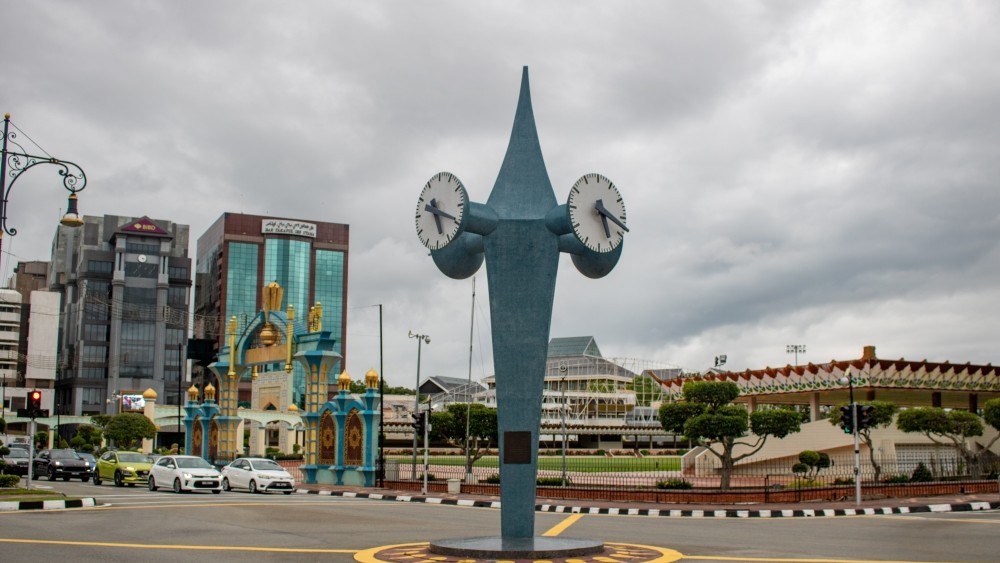
SINGAPORE, August 13, 2025 – Brunei’s economy continues its robust recovery, underpinned by modest inflation and macroeconomic stability. Prudent fiscal buffers and a strong external position provide resilience against global headwinds. However, structural reforms continue to face challenges, exacerbated by external pressures such as energy market volatility, shifting trade dynamics, and the accelerating global transition toward decarbonization.
These conclusions are detailed in the 2025 Annual Consultation Report on Brunei Darussalam, released today by the ASEAN+3 Macroeconomic Research Office (AMRO). The report is based on AMRO’s Annual Consultation Visit to Brunei in April 2025 and incorporates data and information available up to May 30, 2025.
Economic developments and outlook
Economic activities remain robust, reflecting a broad-based growth momentum. Growth has been led by a strong rebound in both the upstream and downstream oil and gas sectors. The non-oil and gas sector is also performing well, supported by the continued strength in trade, air transport, and communication. Recovery in the agri-food and tourism sectors is likewise making steady progress. Growth is projected to ease to a more sustainable pace of 2.0 percent in 2025–26.
Headline inflation has been declining since 2023 and turned negative last year, reflecting lower prices in transport, communication, clothing, and footwear. It is expected to stay subdued, averaging below 1 percent in 2025–26, driven by lower food and energy costs.
The external position remains robust, supported by a sizable current account surplus and ample reserves. However, the surplus is projected to decline to 11.5 percent of GDP in 2025, from 14.6 percent in 2024, largely due to the softening of global energy prices. Continued demand for imported services—particularly in transport and travel—is expected to widen the services account deficit, contributing to the moderation of the current account surplus.
On the fiscal front, the fiscal deficit widened to 13.0 percent of GDP in FY2024 and is projected to increase further to 13.9 percent of GDP in FY2025, amid soft global energy prices.
Risks, vulnerabilities and challenges
Risks to the growth outlook are broadly balanced in the near term amid a more uncertain global backdrop. Key risks include an extended period of unplanned disruptions in O&G production, a sharper-than-expected decline in global energy prices, and weaker demand from major trading partners. Over the longer horizon, sustaining the pace of economic diversification remains a key challenge, particularly when the global environment is turning less favorable, and the trajectory of global decarbonization remains uncertain.
Policy recommendations
Maintaining a prudent fiscal stance is essential, given the volatility of oil and gas revenues. Brunei has so far financed its fiscal deficits through drawdowns from fiscal reserves. While this financing plan offers short-term flexibility and avoids debt accumulation, it is crucial that these buffers are used strategically to smooth temporary shocks rather than finance persistent structural imbalances. AMRO welcomes the initiatives under the Fiscal Consolidation Program, which lay the foundation for more comprehensive reforms in the future. To foster long-term fiscal sustainability and uphold intergenerational equity, the authorities are encouraged to strengthen rules-based fiscal frameworks that enhance credibility, transparency, and effective policy design.
The Currency Board Arrangement and Currency Interchangeability Agreement with Singapore continue to underpin macroeconomic stability in Brunei, anchoring monetary credibility. AMRO supports the Brunei Darussalam Central Bank’s (BDCB’s) continuing efforts to strengthen the alignment of its BDCB’s facilities rates with those of Singapore’s, and to further enhance monetary policy transmission by expanding the use of liquidity management tools, including increasing the issuance amount of BDCB I-Bills.
To mitigate financial stability risks, authorities are encouraged to enhance due diligence and risk assessment for offshore lending by domestic banks, particularly in light of the potential risks from cross border exposures.
Deepening economic linkages and trade integration through bilateral and regional free trade agreements will be essential to boosting market access and attracting greater foreign direct investment, particularly in an era of rising global trade fragmentation. At the same time, further developing the non-oil and gas sector is critical for sustaining long-term growth. Policy priorities include promoting greater labor market flexibility and competitiveness, supporting MSMEs in harnessing digitalization capabilities to drive innovation, and further fostering green innovation as key drivers of future growth.
About AMRO
The ASEAN+3 Macroeconomic Research Office (AMRO) is an international organization established to contribute toward securing macroeconomic and financial resilience and stability of the ASEAN+3 region, comprising 10 members of the Association of Southeast Asian Nations (ASEAN) and China; Hong Kong, China; Japan; and Korea. AMRO’s mandate is to conduct macroeconomic surveillance, support regional financial arrangements, and provide technical assistance to the members. In addition, AMRO also serves as a regional knowledge hub and provides support to ASEAN+3 financial cooperation.
About AMRO’s Annual Consultation Report
The Annual Consultation Report was prepared in fulfillment of AMRO’s mandate. AMRO is committed to monitoring, analyzing and reporting to its members on their macroeconomic status and financial soundness. It also helps identify relevant risks and vulnerabilities, and assists members, if requested, in the timely formulation of policy recommendations to mitigate such risks.
